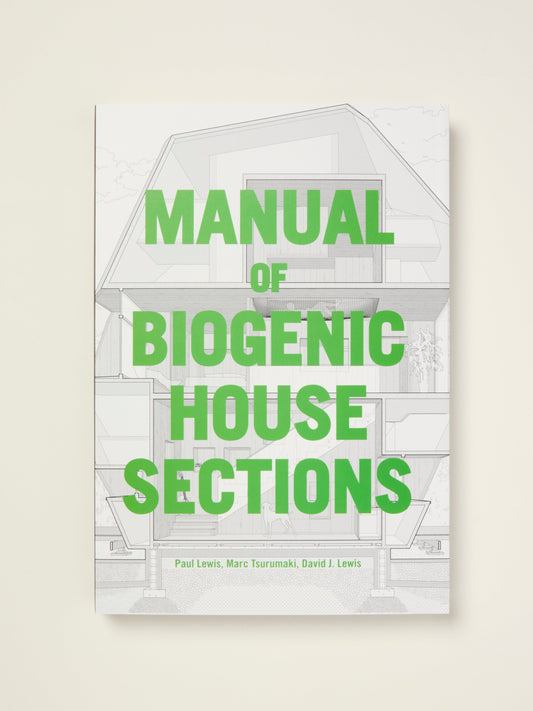
Manual of Biogenic House Sections
The goal of ‘Manual of Biogenic House Sections’ is to show how houses can be design and built today using material assembly systems that are either low carbon emitting materials, or are carbon sequestering renewable, plant-based materials.
Recognizing that buildings are a major contributor to global warming and the critical role of embodied versus operational carbon, the book focuses on houses built from materials that either sequester carbon (plants), use materials with very low embodied carbon (earth and stone) or reuse substantial amounts of existing materials. Organized by those materials (wood, bamboo, straw, hemp, cork, earth, brick, stone and re-use), and incorporating life cycle diagrams demonstrating how the raw material is processed into building components, the book shows how the unique properties of each material can transform the ways architects conceive the sections of houses.

Thinking and Building on Shaky Ground: On Architecture in Seismic Regions
Building with earthquakes is a familiar yet persistent design problem for resilient construction on all continents. This book elaborates on various factors for earthquake-resilient architecture in six thematic chapters that explore the design strategies of lightness, quickness, exactitude, visibility, multiplicity and consistency. These factors allow designers to develop contextual solutions...

Architecture in Mexico, 1900–2010
This expanded two-volume edition of Arquine’s 2013 publication examines the architectural styles that have taken place in Mexico during the 20th century and the beginning of the 21st. The book is divided into six periods: the beginning of the century (1900–24); modernity (1925–39); the heroic period (1940–68); new monumentality (1969–89);...
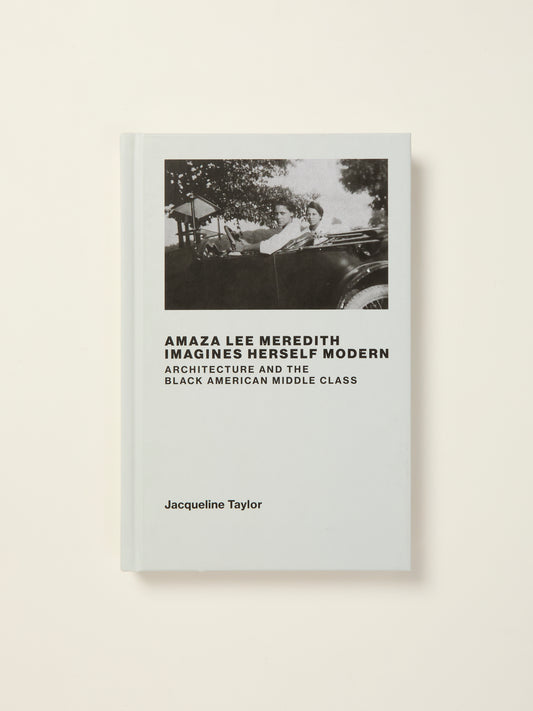
Amaza Lee Meredith Imagines Herself Modern: Architecture and the Black American Middle Class
The extraordinary life and work of architect Amaza Lee Meredith, and the role modernism and material culture played in the aspiring Black American middle class of the early twentieth century.
Amaza Lee Meredith Imagines Herself Modern tells the captivating story of Amaza Lee Meredith, a Black woman architect, artist, and educator...
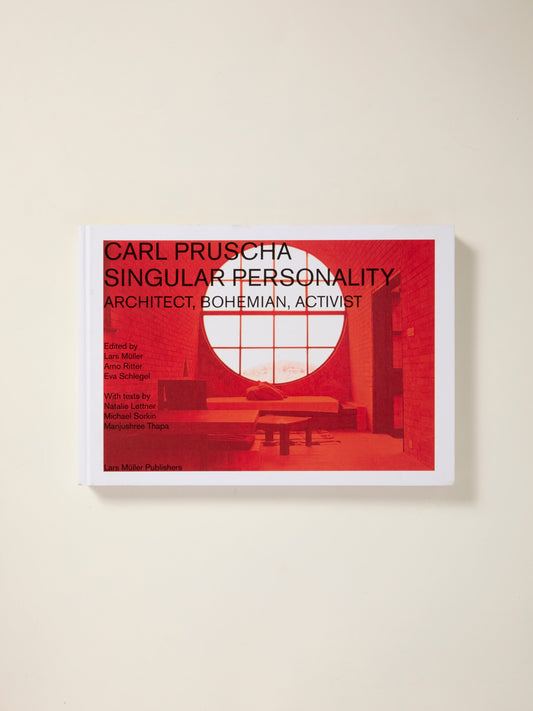
Carl Pruscha: Singular Personality
This monograph on the work of Austrian architect Carl Pruscha (born 1936) is divided into the three geographical areas into which his life and legacy falls: the United States, Kathmandu and Vienna. Following his study of architecture at the Academy of Fine Arts Vienna, Pruscha spent the early 1960s at...
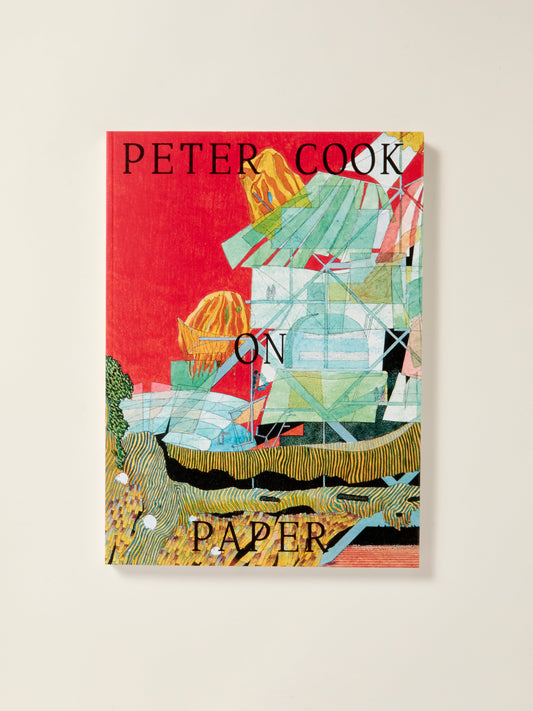
Peter Cook On Paper
English architect and writer Sir Peter Cook, renowned for his free-thinking spirit translated into architectural lines and shapes, is perhaps most well-known as the co-founder of the avant-garde architectural group Archigram in the 1960s. A selection of his drawings is offered here as part of the exhibition series “Louisiana...

Fire Island Modernist: Horace Gifford and the Architecture of Seduction
Featuring new houses, many additional photographs and a new afterword, Fire Island Modernist offers a fascinating look at the history and culture of this "gay paradise" through the life and work of Horace Gifford.
As the 1960s became the "Sixties," architect Horace Gifford executed a remarkable series of beach houses...

Casa Mexicana
The best new houses from Mexico, currently the exciting epicenter of the architecture scene fueled by brilliant young practices, a booming economy, and a liberal sprinkling of concrete.
Mexico’s domestic architecture scene is on the rise, characterized by innovative homes that play with texture through the use of concrete and...

Seeing Fire | Seeing Meadows
Seeing Fire | Seeing Meadows is a novel that foregrounds architecture into storytelling. Natalie, an architect, describes the city of Berlin governed by algorithms where human participation is rewarded with creature comforts as well as ecstatic experiences. She and her friend Winter, a daring software programmer, begin to have doubts...

Towards Home: Inuit & Sámi Placemaking
Design and building concepts that pay respect to the land and empower Indigenous communities across the Northern Hemisphere.
An Indigenous-led publication, Towards Home explores how Inuit, Sámi and other communities across the Arctic are creating self-determined spaces. This research project, led by Indigenous and settler coeditors, is titled after the...

Where I Was From
Didion, Joan | New York, NY | Vintage, 2004 | Softbound | 5 x 8 in. | 240 pp.
From the bestselling, award-winning author of The Year of Magical Thinking: In this "arresting amalgam of memoir and historical timeline” (The Baltimore Sun), Didion—a native Californian—reassesses parts of her life, her work,...
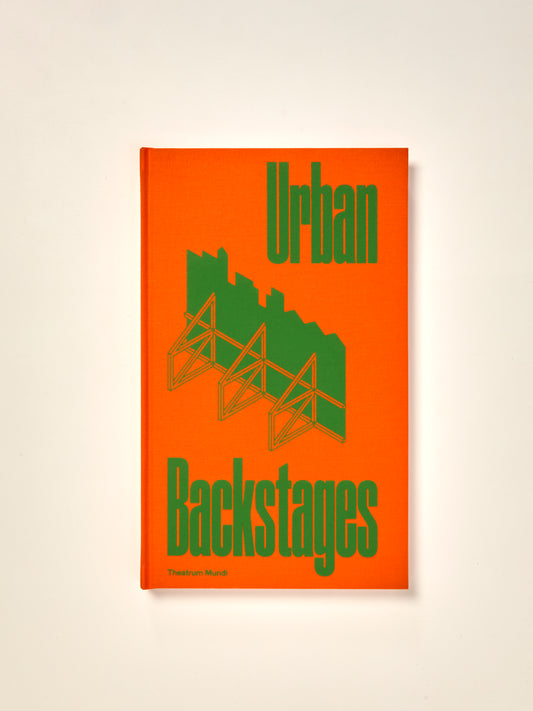
Urban Backstages
If we think of the public-facing cultural sites largely aimed at national and international tourists and visitors, such as monuments, museums, galleries and theatres, where culture is consumed and displayed as the ‘urban stage’, then its behind-the-scenes counterpart is the ‘urban backstage’, which includes both the hidden spaces where cultural...
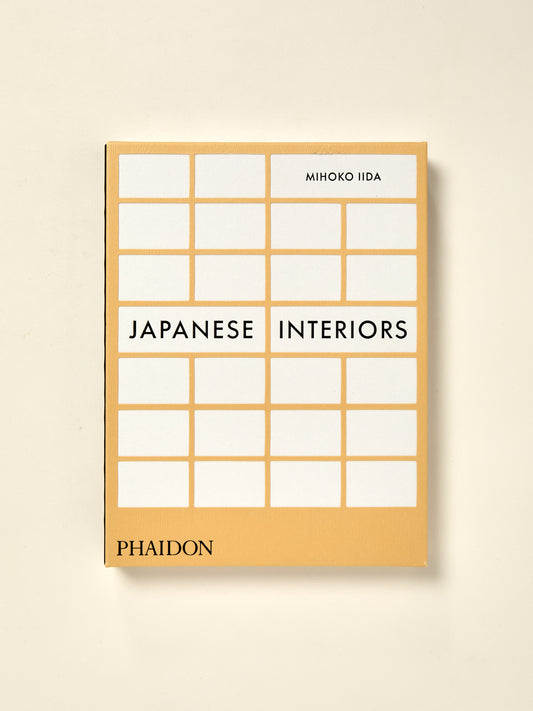
Japanese Interiors
An insider's look at the myriad styles of private homes of Japan, showing how Japanese interior design continues to evolve in a new era.
Exploring the art and craft of Japanese residential interiors, author Mihoko Iida provides an insider's look into the wide-ranging interior design of her country's private homes....
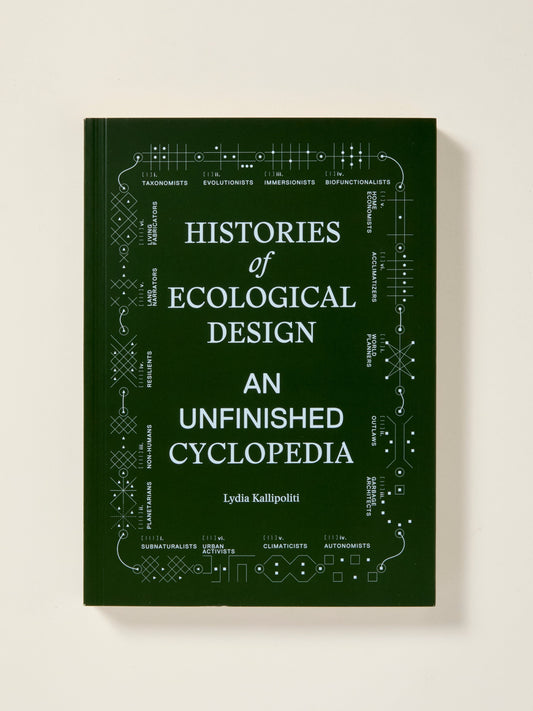
Histories of Ecological Design: An Unfinished Cyclopedia
This book documents the intersection of architecture and design with ecology, environmental history, policy, governance and law from the 19th century to today. It presents conflicting definitions and concepts of architects and designers and the parallel histories of their intellectual positions toward environmental throughout time.
There have been many accounts on...

Greenhouse Stories: A Critical Re-Examination of Transparent Microcosms
Shifting away from the celebration of greenhouses, Greenhouse Stories is an invitation to critically look at the buildings as controversial production tools. Reexamining them from a social, historical and environmental perspective, the essays and interviews featured in...
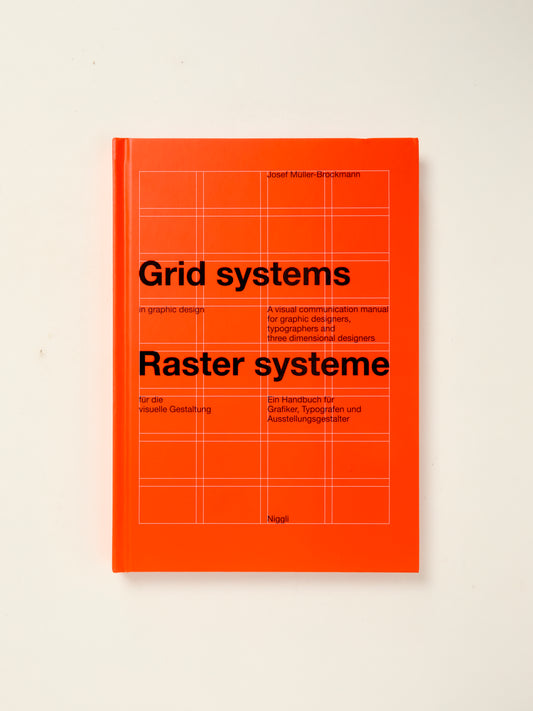
Grid Systems in Graphic Design
Josef Müller-Brockmann (1914−1996) studied architecture, design and history of art in Zurich and worked as a graphic designer and teacher. His work is recognized for its simple designs and his clean use of fonts, shapes and colors, which still inspires many graphic designers throughout the world today. Since the 1950s...
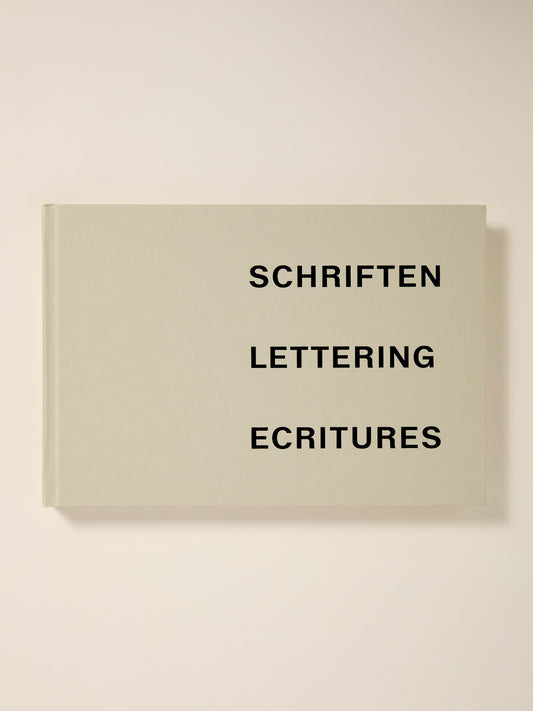
Schriften, Lettering, Écritures
For decades, Walter Käch’s Lettering (1949) served as a vital handbook for practitioners and students of type design in Switzerland and beyond. Its lessons helped shape the distinctive forms and ethos of mid-century design, leading to the development of influential typefaces such as Univers and Helvetica. Until now, this historic type textbook has been notoriously out of print.
Käch was ahead of his time, and his suggestions remain relevant for our current age of Bezier curves and pixels. Today’s readers can learn by tracing: Käch taught designers how to look for elements in the construction of letters that could be modified and built upon, allowing for the smooth development of typeface families. One of the richest places to find these elements, for Käch, was the history of writing itself, and he encouraged his students to recycle past motifs to unlock new design potential.

Hanzi Kanji Hanja 2: Graphic Design with Contemporary Chinese Typography
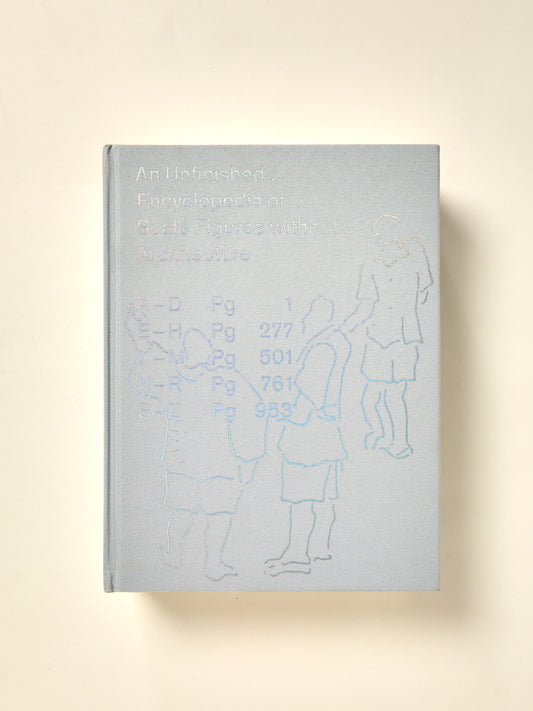
An Unfinished Encyclopedia of Scale Figures without Architecture
More than 1,000 representations of the human figure in architectural drawings by architects ranging from Aalto to Zumthor, removed from their architectural context.
Architects draw buildings, and the buildings they draw are usually populated by representations of the human figure—drawn, copied, collaged, or inserted—most often to suggest scale. It...

Bedtime Stories for Architects: Peter Wilson
Bedtime Stories for Architects, is a compendium of texts, built works and graphic work by Peter Wilson. It offers glimpses of buildings by the German based office of BOLLES+WILSON, but it is not a monograph, it presents a cloud of discursive subjects and narratives, evidencing Wilson’s take on a wide...
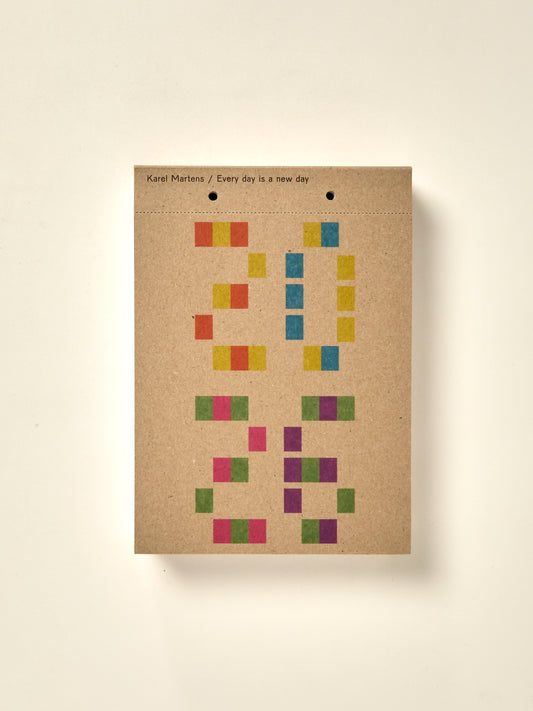
Karel Martens - Calendar 2026 / Every Day is a New Day
A tear-off calendar for 2026 by Dutch graphic designer Karel Martens. For each day of the year, Martens has created a unique arrangement, originally constructed using his signature method of printing letterpress monoprints from found metal forms, and then digitized to comprise 365 compositions in total. Every day is a...
